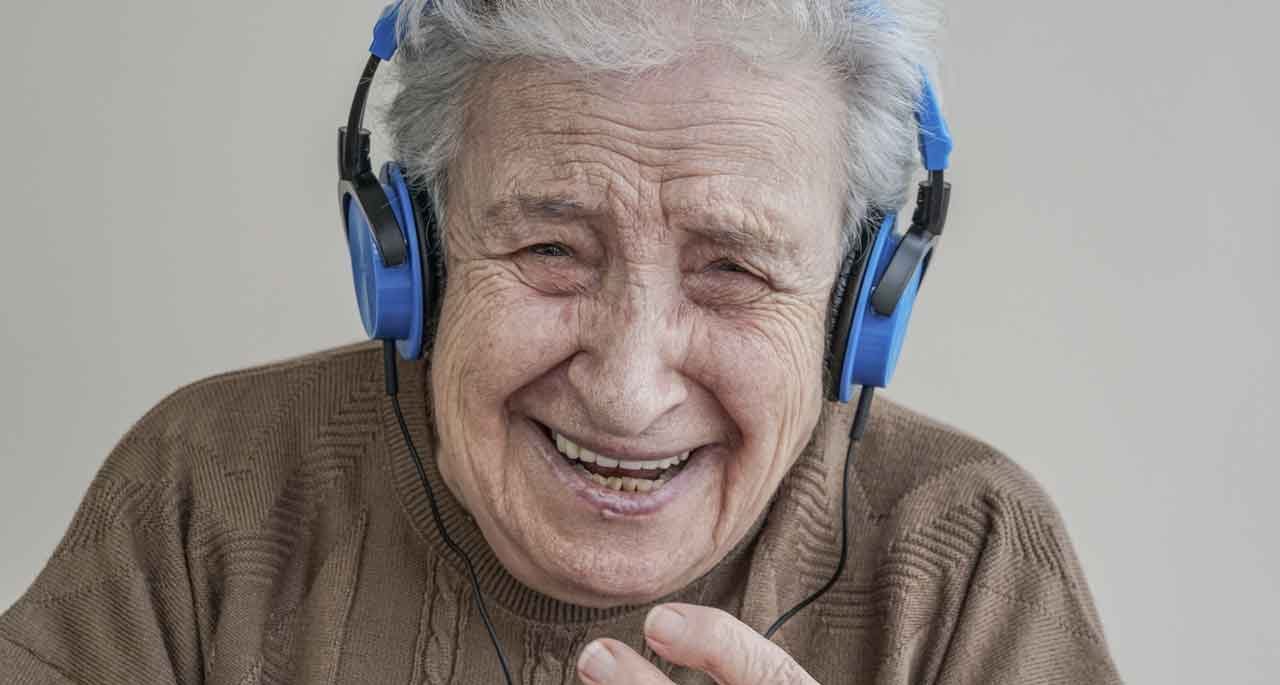The Healing Power of Music for Dementia Patients

The healing power of music: caregivers can use music, especially singing, to help improve the mood and memory of a dementia patient they’re caring for.
The power of music
Countless philosophers, authors, parents, and lovers have noted music can be a powerful force. Lullabies calm babies, love songs spur romance, and a catchy, upbeat tune can set toes tapping and boost energy. Now scientists have found that music also has an impact on people with dementia — often helping in ways that medication can’t.
YOU MIGHT ALSO LIKE: Caring for a Person with Alzheimer’s
To see if actively incorporating music into the lives of people suffering from Alzheimer’s disease and similar memory-robbing ills relieved symptoms, University of Helsinki researchers recruited a group of people with dementia in various stages along with the patients’ caregivers. Before the study began, the dementia sufferers were tested to find out the severity of their disease and the kind of care they received was noted, too. The research team also documented the patients’ moods, their quality of life, and whether the dementia patients had any previous musical experience.
Then, for about two and a half months, both the 89 people with dementia in the study and their caretakers participated in a music intervention program. The caretakers coached the dementia patients to listen to familiar songs or to sing.
The healing power of music
After 10 weeks, testing showed the research participants with mild-to-moderate dementia had experienced improvements in their working memory (the ability to remember and process new and already-stored information). Singing especially boosted working memory. Those who were younger than 80 and had mild dementia benefited the most.
The healing power of music also helped general cognition — the ability to think and remember — especially in those with moderate dementia not caused by Alzheimer’s disease. What’s more, both singing and listening to music reduced depression in patients with Alzheimer's-type dementia. The improvement in symptoms occurred whether or not the dementia patients had ever taken singing lessons or studied music in their past.
YOU MIGHT ALSO LIKE: The Stages of Alzheimer’s Disease
“Given the increasing global prevalence and burden of dementia and the limited resources in public healthcare for persons with dementia and their family caregivers, it is important to find alternative ways to maintain and stimulate cognitive, emotional, and social well-being in this population,” said neuroscientist Teppo Särkämö, PhD, who headed the study.
“Our findings suggest that musical leisure activities could be easily applied and widely used in dementia care and rehabilitation. Especially stimulating and engaging activities, such as singing, seem to be very promising for maintaining memory functioning in the early stages of dementia.”
Other ways music can help
Other researchers have also found that music can help patients with dementia in multiple ways. For example, depression, agitation, and wandering are common behaviors associated with Alzheimer’s and other forms of dementia. These problems frequently don’t respond well to medication and can hinder life quality not only for dementia patients but for their family members and other caregivers, too. However, exposure to music can help.
A New York University Langone Medical Center study of 132 people with moderate-to-severe dementia found that just two weeks of music therapy significantly reduced symptoms of depression and agitation (although it didn’t help wandering).
Music most likely improves mood, calms stress-induced agitation, and helps mental functioning in people with dementia by influencing parts of the brain that respond directly to sound and rhythm stimulation, according to the Alzheimer’s Foundation of America. Because people with dementia can often enjoy music and engage in singing until late stages of their disease, music therapy can help caregivers improve the quality of life for people with dementia.
Lively music with quick tempos promotes physical movement and may help stimulate people with dementia to more easily take part in activities of daily living. For example, stimulating music can help them stay away at dinner if they tend to fall asleep at the table. On the other hand, ballads and lullabies with soft, slow tempos can calm dementia patients when they are preparing to sleep or if their routine is being changed and causing agitation.
Updated:
April 07, 2020
Reviewed By:
Christopher Nystuen, MD, MBA